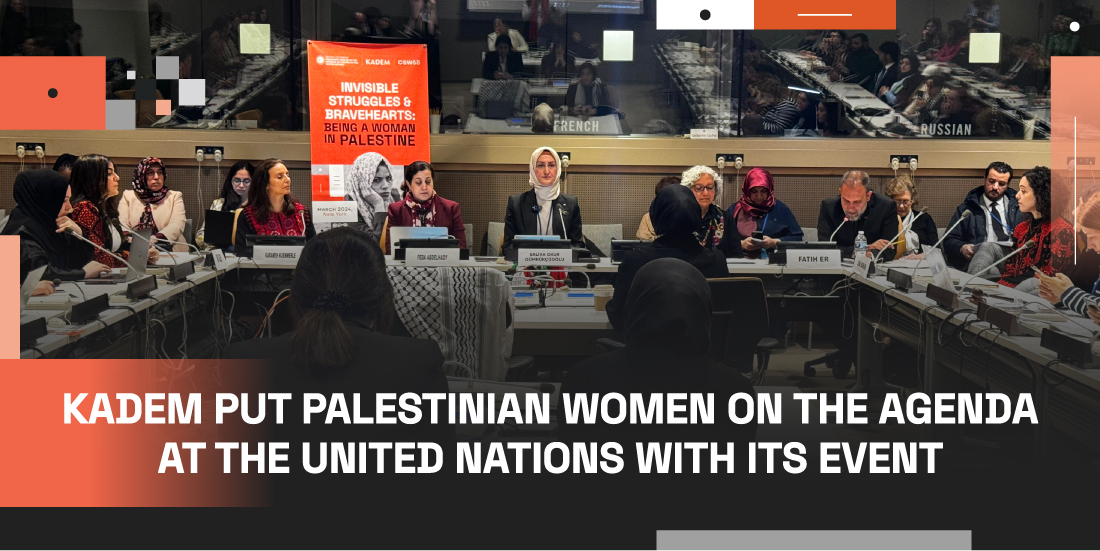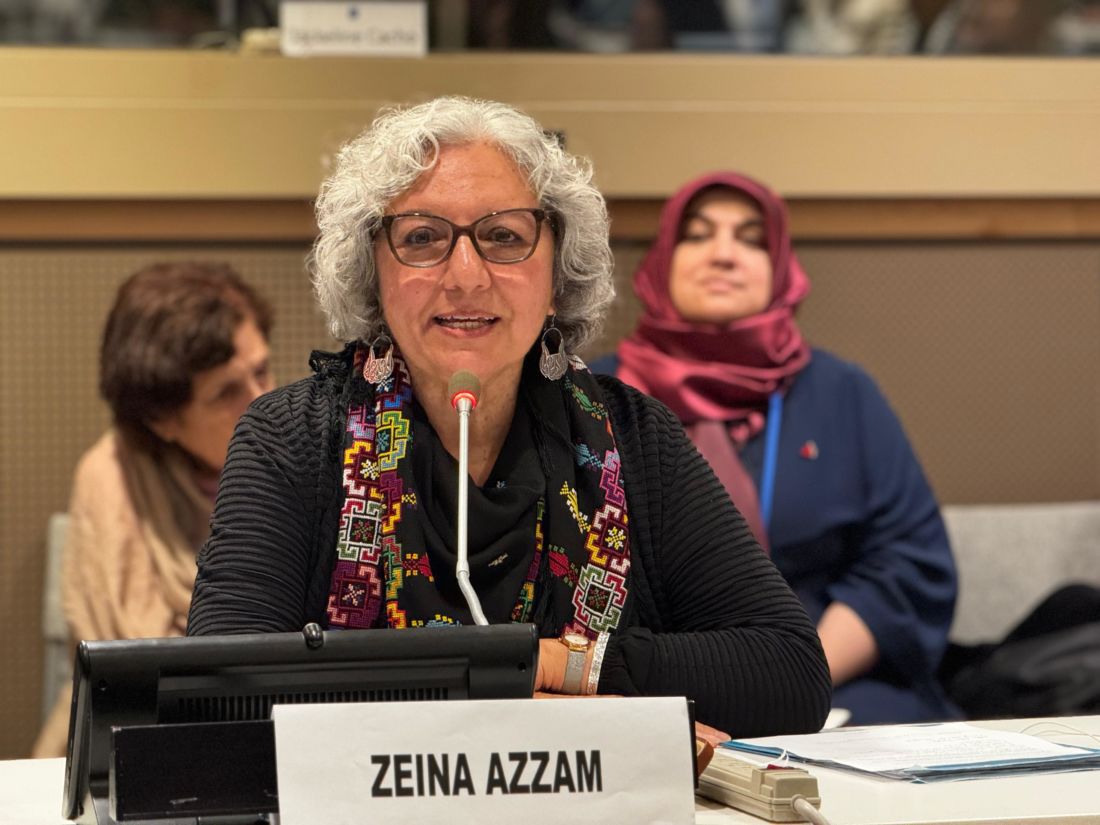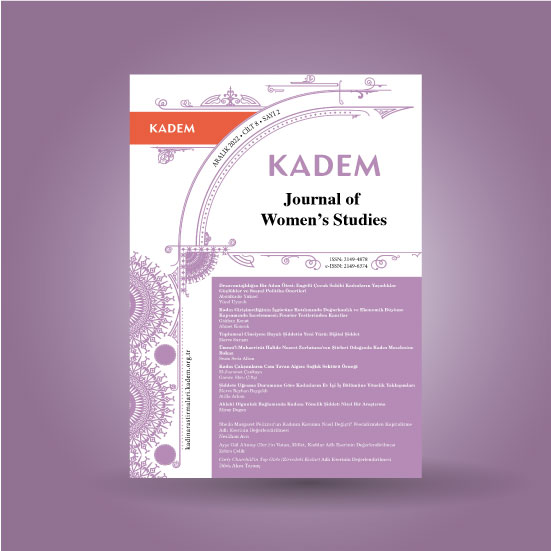The Outcry of Gazan Women Echoed in the United Nations!

The Women and Democracy Foundation organized an event titled “Invisible Struggles and Brave Hearts: Being a Woman in Palestine” during the 68th Session of the United Nations Commission on the Status of Women in New York.
The event, held at the United Nations Headquarters on March 18th, commenced with a short film screening prepared by KADEM, featuring messages from women living in Jerusalem, the West Bank, and Gaza.
The opening speech of the event, which took place with intense interest and participation, was delivered by Assoc. Prof. Dr. Saliha Okur Gümrükçüoğlu, the Chairwoman of the Executive Board of KADEM.
The Chair of KADEM highlighted the criminal complaint they submitted to the International Court regarding Israel, and provided detailed information about their actions and awareness-raising efforts on the Palestine issue domestically and internationally through their 55 representative offices and youth organizations.
In her speech, Gümrükçüoğlu stated, “Palestinian women carry the seeds of Palestinian freedom in their bodies and souls. A young Gazan mother with six children said to a friend of ours visiting Gaza: ‘Israel kills two of my children, two provide for our livelihood, two study and aspire for a better future.’ This awareness shows us why Israel so openly targets children and women, why it seeks to destroy the healthcare system.”
The panel, moderated by experienced journalist Fatih Er, who has spent many years in Jerusalem and Gaza, featured the following participants: Ambassafor Feda Abdelhady, Deputy Permanent Observer of Palestine to the United Nations mission; Karamah Kuemmerle, founder of Doctors Against Genocide; Safa Salem, representative of the Union of Arab Students living in the diaspora; award-winning poet Zeina Azzam; and Lina Barkawi, an artist specializing in Palestine’s traditional embroidery art, tatreez.
The panel began with moderator Fatih Er reading a letter written by Rachel Corrie, who was killed by Israeli forces in Gaza after being crushed by a bulldozer.
Poet Zeina Azzam explained the significance of Palestinian poetry, stating, “Our poems encompass more than just resistance literature. They cover social justice, women’s empowerment, identity, collective memory, love, family, and universal themes. Our pens are like weapons.” Moments when Azzam read her poem “Write my name on my leg, mama” written for the children of Gaza left the audience in tears.

Write my name on my leg, Mama
Use the black permanent marker with the ink that doesn’t bleed
if it gets wet, the one that doesn’t melt
if it’s exposed to heat
Write my name on my leg, Mama
Make the lines thick and clear
Add your special flourishes
so I can take comfort in seeing
my mama’s handwriting when I go to sleep
Write my name on my leg, Mama
and on the legs of my sisters and brothers
This way we will belong together
This way we will be known
as your children
Write my name on my leg, Mama
and please write your name
and Baba’s name on your legs, too
so we will be remembered
as a family
Write my name on my leg, Mama
Don’t add any numbers
like when I was born or the address of our home
I don’t want the world to list me as a number
I have a name and I am not a number
Write my name on my leg, Mama
When the bomb hits our house
When the walls crush our skulls and bones
our legs will tell our story, how
there was nowhere for us to run.
Activist and “tatreez” artist Lina Barkawi, summarized her work with the following words: “Tatreez is a language among Palestinian women. It’s not just for communication but also for keeping records. It’s a language used to document the events and feelings experienced by women. After 1948, women and families were forcibly sent to refugee camps. Women started doing tatreez together here. Tatreez became a survival method in the early days of Nakba. When the Palestinian flag and symbols representing Palestine were banned, women embroidered our flag onto their clothes as a form of representation.”
At the end of the panel, Deputy Permanent Representative of the State of Palestine to the UN, Ambassador Feda Abdelhady, stated, “The State of Palestine should rightfully take its place among the nations of the world. Palestine is a state, a state under occupation.”


